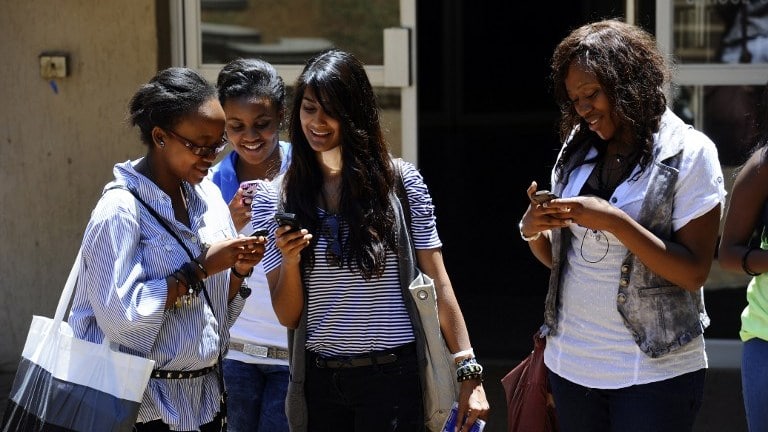advertisement
Youths dominate Internet usage, while mobile broadband subscriptions set to hit 4.3 billion
New data released by International Telecommunication Union (ITU), shows that 830 million young people are online, representing 80 per cent…

New data released by International Telecommunication Union (ITU), shows that 830 million young people are online, representing 80 per cent of the youth population in 104 countries.
Dubbed as ITU’s ICT Facts and Figures 2017 also shows a significant increase in broadband access and subscriptions with China leading the way.
This much-anticipated annual release of global ICT data shows that youths (15-24 year olds) are at the forefront of Internet adoption. In Least Developed Countries (LDCs), up to 35 per cent of individuals using the Internet are aged 15-24, compared with 13 per cent in developed countries and 23 per cent globally. In China and India alone, up to 320 million young people use the Internet.
advertisement
“ITU’s ICT Facts and Figures 2017 shows that great strides are being made in expanding Internet access through the increased availability of broadband networks. Digital connectivity plays a critical role in bettering lives, as it opens the door to unprecedented knowledge, employment and financial opportunities for billions of people worldwide,” said ITU Secretary-General Houlin Zhao in a press statement.
The report further reveals that mobile broadband subscriptions have grown more than 20 per cent annually in the last five years and are expected to reach 4.3 billion globally by the end of 2017.
Between 2012 and 2017, LDCs saw the highest growth-rate of mobile broadband subscriptions. Despite this, the number of mobile subscriptions per 100 inhabitants in LDCs is the lowest globally at 23 per cent.
advertisement
The number of fixed-broadband subscriptions has increased by 9 per cent annually in the last five years with up to 330 million subscriptions added.
There has been an increase in high-speed fixed broadband subscriptions parallel to the growth in the number of fibre connections. Most of the increase in high-speed fixed broadband subscriptions in developing countries can be attributed to China, which accounts for 80 per cent of all fixed-broadband subscriptions at 10 Mbit/s or above in the developing world.
Mobile broadband is more affordable than fixed broadband
advertisement
Mobile broadband prices, as a percentage of gross national income per capita, dropped by half between 2013 and 2016.
Mobile broadband is more affordable than fixed broadband in most developing countries.
Digital gender divide
While the Internet user gender gap has narrowed in most regions since 2013, the proportion of men using the Internet remains slightly higher than the proportion of women using the Internet in two-thirds of countries worldwide. In 2017, the global Internet penetration rate for men stands at 50.9 per cent compared to 44.9 percent for women.
In the Americas, the number of women using the Internet is higher than that of men.
International bandwidth and telecommunication revenues
International Internet bandwidth grew by 32 per cent between 2015 and 2016, with Africa registering an increase of 72 per cent during this period, the highest of all regions.
Global telecommunication revenues declined by 4 per cent from USD 2.0 trillion in 2014 to USD 1.9 trillion in 2015. Developing countries, which are home to 83 per cent of the global population, generate 39 per cent of the world’s telecommunication revenues.
ICTs for the SDGs
ITU’s ICT Facts and Figures demonstrates that ICTs continue to play an increasingly critical role in achieving the global Sustainable Development Goals (SDGs).
“ICTs continue to be a key enabler of economic and social development, bridging the digital divide and fostering an inclusive digital economy,” ITU Telecommunication Development Bureau Director Brahima Sanou in a press statement “I am confident that the discussions at World Telecommunication Development Conference 2017 will contribute to the fast-forwarding of countries towards attainment of the SDGs.”